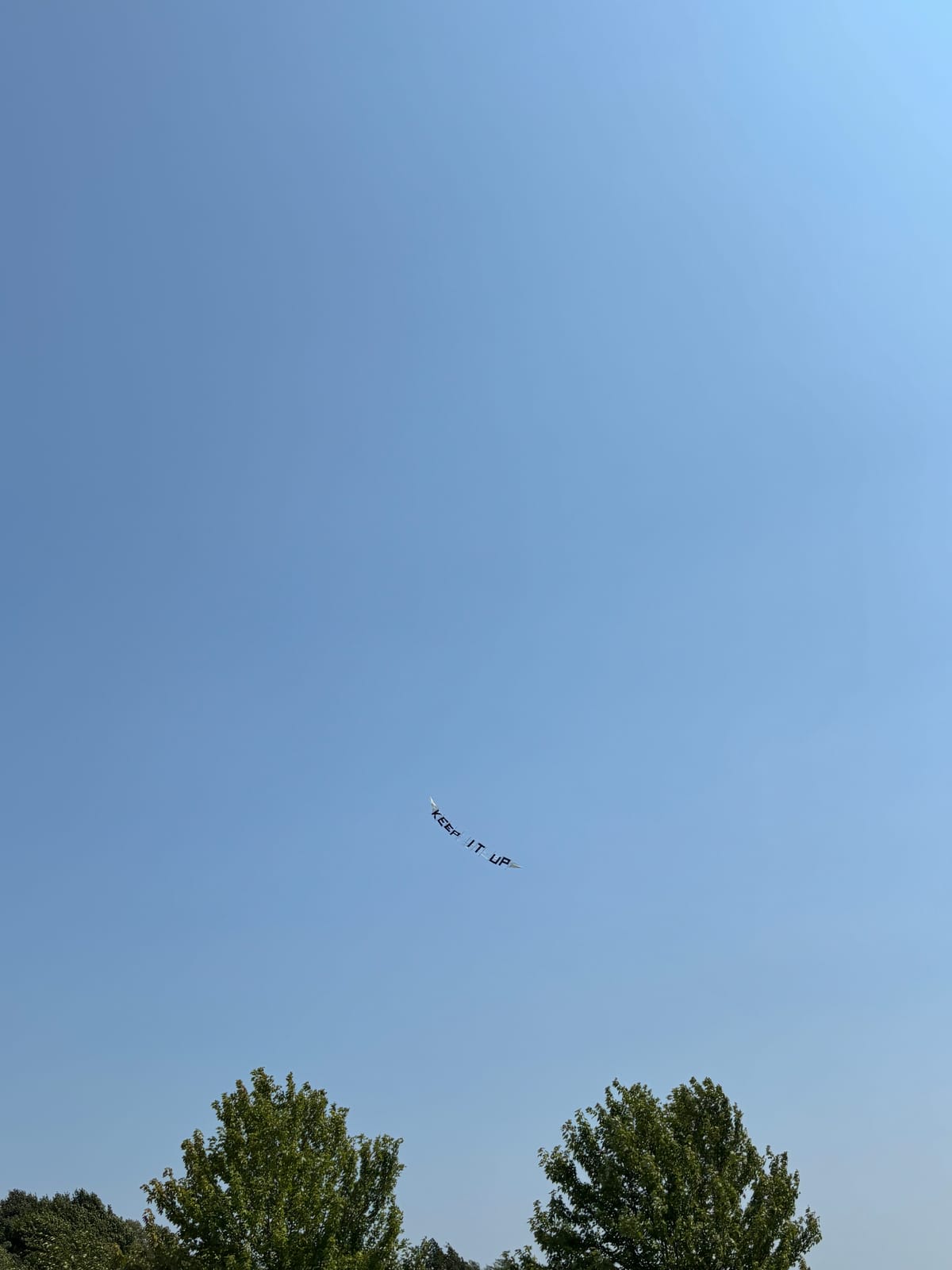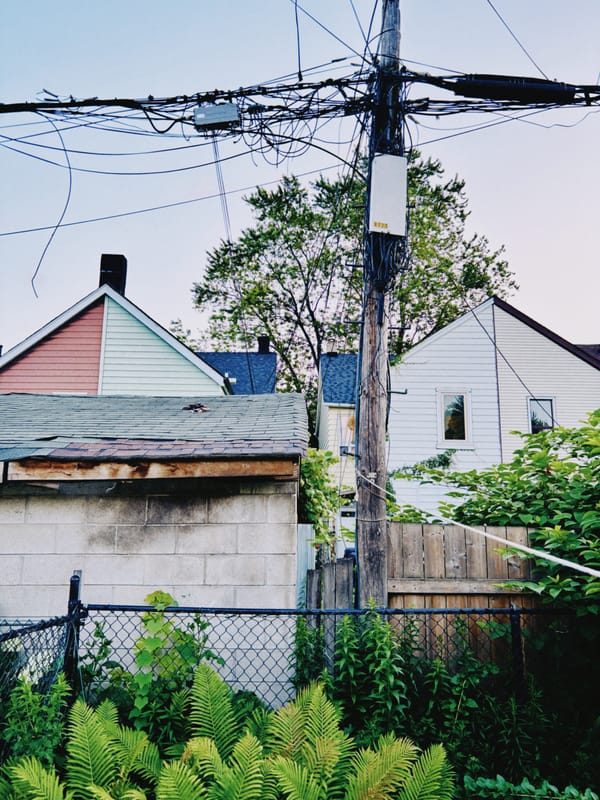One One

I am recently home from my east coast book tour/mini-holiday. PEI. Sackville, NB. After a lovely evening event—in conversation with the great Jaime Burnet—at the Halifax library and a red-eye flight home on a budget airline, I contracted COVID-19 for the third time. Within the grip of disease, I lost a week and change of my life, which has led to me no longer really knowing what day or time it is anymore. I mean look, I know in theory. I have a calendar and a clock same as anyone, but it doesn’t feel right anymore. Everything is smothered under the veneer of a silken lie my brain tells my body. I feel unmoored in my own way, like a boat with a faulty motor improperly tied to a dock that has drifted out to the middle of the lake. Not in any real danger, but in need of rescue all the same. So maybe this will be a weird one, or potentially this will be me at my most alive.
I have been reaching for comfort in the waves and wake of my third instance of this illness, and since the last time I contacted it my lungs suffered some kind of dino-damage that is lingering in my throat, I have spent the week worrying about what irreparable damage this round will do to my body/mind. To avoid the anxious inner battles, I spent this lost week lying on the couch, or lying in bed, all the while complaining about sinus headaches, being tired, and being congested. I watched 90s Law & Order episodes and almost every season of Daria with Lysh—who had COVID-19 with me, or got COVID-19 from me if you’re a pessimist/realist—on the same couch and in the same bed. I tried and failed to read things and to write all the words I’m behind on. Tried and failed to use my time constructively. The only success I found all week was losing myself in a second screen experience, playing video games nonstop and finding comfort in memories of the past, and I have been playing Mario Bros for the NES just to hear the music.
There’s some perfect memory that lurks in Koji Kondo’s score for Super Mario Bros. The game, released for the Nintendo Entertainment System in 1985, was a seismic shift in the way video games felt. Mario is not the first video game I ever played—that honour goes to the infamous disaster piece of E.T for the Atari 2600—but it’s the first video game that stuck with me. It’s the first video game that taught me a language I have never forgotten the rhythm of. How to move and jump, how to plan ahead for disaster, how to die and accept it as part of being alive. How to remember where the enemies are, and where the pits are located, and how to eventually avoid each to make it to the end. Mario Bros is Dad Rock in its own way, in that it is a game that teaches you successive lessons through the failures of the past so that you might avoid many of them as you work your way to the end of all things. Maybe you’ll fail enough to succeed beautifully. Maybe you’ll be the one to see it all the way through, and only at the end will you know that where it all stops is the least memorable part. Maybe all you will remember is the times you fucked up and failed and tried again. Maybe these are the memories that will appear like a rope when you need to pull yourself back to show.
Koji Kondo only wrote six songs for the soundtrack. It’s all the cart could hold when limited by technology, and it’s all the game ever needed. Where video game music before it had largely been utilitarian, existing only to fill the void behind the player, the music in Mario Bros is purposeful and intentional. It is part of the world, and it is part of you. He was given animations from the game early, and wrote the theme with dynamic movement in mind, wanting every step, every jump, every pitfall to be accented by the music. Koji Kondo wanted the player to feel something, for the music to build a muscle in the body. Each newly struck chord, a nerve ending firing at just the right time.
When my sister played Mario, her arms moved with the controller in hand as she ran and jumped, as if the music had worked so well that it had connected her to the world on the screen. As if it were urging her to move, to let her limbs reflect the action on the screen, connected by the music bursting out through the tweaked high-end of the inboard speakers in our giant wood-enclosed television.
I remember being at a friends' birthday, and everyone playing Mario in the basement when the parents needed a break from kids screaming over new presents and McCain Deep and Delicious cakes. I remember how it felt watching someone move through the world on the screen with motions different from the ones I knew, but always to the same beat. The songs hitting the same. Everyone in the room knew the beats of the song, and sang along to wordless tunes. All of us different kids from different parents on different streets, who all shared a language together.
I’ve been thinking a lot about video game music lately, which I often listen to when I write in the morning or when I’m working through admin or other numb aspects of my work. The familiar tones weave a calming backdrop of comforting favourites that have taught me a thousand lessons taken for granted, faded into the fabric of my life. There is a playlist of songs from games that have shaped me that calm my brain when it needs to focus, and I haven’t given them enough credit. I have a plan, loosely formed while my brain melted under the heat lamp of disease, to write about music in games more. To examine what they mean to me, then and now, and what the impact of them has been. There is a lot said about playing games, but less about listening to them, and I’d be interested in exploring it more. The themes and memories hidden in pixels on a screen, the lessons learned in compressed midi samples and chiptunes.
The initial beat that you hear upon first walking into world 1-1 of Super Mario Bros, is a universal heartbeat. It’s a tune you can whistle in any room you enter and find someone who could finish it without thought. It’s the lifeblood of its world and ours, and it laid a foundation that lives could be built on. A simple, pleasing rhythm that was the soundtrack to frustrations with the ceaseless attacks of goombas (the little mushroom guys) and koopas (the slightly bigger turtle guys). The tones of triumph in mastering jumps, finding secrets, and scaling blocks built into a staircase that led to a tower. A goal at the end of the line you could leap off and reach for victory and feel okay if you missed, knowing there’s always another opportunity to try and get through it.




